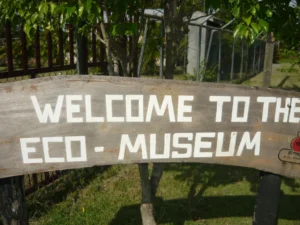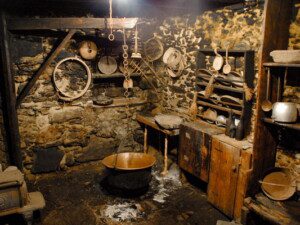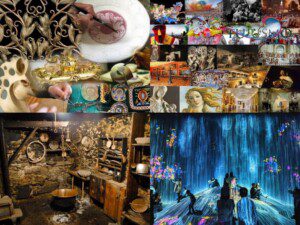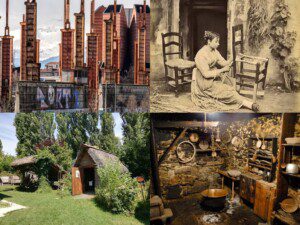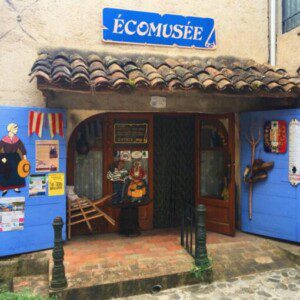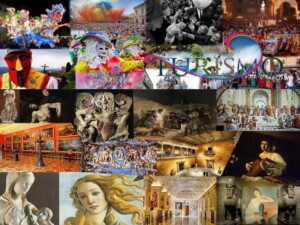Experience Specialist: Reference scheme

Scheme C) Unregulated profession built without regulatory references.
The reference scheme is based on the 'modelSkills Cycle' and is in line with the 'Tourism, Arts, Heritage Competence Framework (TAH-CF)'. the TAH-CF is defined in accordance with the European Qualifications Framework (EQF), the Recommendation of the European Parliament and of the Council 2009/C 155/02 (ECVET) and the APNR (Non-Regulated Professional Activities) scheme adopted by UNI for the technical standardization of unregulated professions.”
Description
PSTES3: Experience Specialist
The Experience Specialist is a professional figure who has the skills to carry out specialist support activities in the planning, management and evaluation of Experiential Offers in various sectors in which experiential events are possible. This figure has in-depth knowledge of experiential principles and the characteristics of experiential offerings.
The Experience Specialist usually works as an employee or collaborator within organizations that provide experiential offers.
In order to take into account the different specializations linked to the different sectors to which the experiential offers are applicable, the different activities indicated in the Repertoire of Experiential Activities
Note:
- The professional who has the preparation to carry out the activities associated with any sector in which experiential offers are offered is considered an Experience Specialist.
- The various specializations are not to be considered distinct in an absolute sense or incompatible with each other, as they differ only in certain operational and sectoral aspects.
- It is assumed that the various specialist figures have adequate knowledge of the sector in which they intend to operate
Standards of Reference
- European Qualification Framework (EQF)
- Recommendation 2009 / C 155/02 (European Credit System for Vocational Education and Training - ECVET)
- Law 4/2013 relating to non-regulated professions
Specific tasks and activities
The specific tasks and activities are listed below, associating the knowledge and skill requirements for each specific task or activity.
Fundamental tasks and specific activities
- T1: Provide specialist support for the design of experiential offers
- T2: Provide specialist support for the management of experiential offers
- T3: Provide specialist support for the evaluation and improvement of the quality of the experiential event
Skills, Knowledge and Autonomy and Responsibility (Skills)
Note: The competences necessary for a profession, which include skills and knowledge, constitute a dynamic whole. These may vary depending on specific territorial contexts and are subject to changes over time due to factors such as technological evolution or other sectoral developments. Therefore, the examples of skills and knowledge presented here are to be considered purely indicative and not exhaustive, and will be subjected to constant revisions and updates.
Task T1: Provide specialist support for the design of experiential offers
-
- Ability
- SQ1: Analysis skills
- SQ11 Design the processes and services necessary for the delivery of the experiential offer
- SQ12: Implement, document and classify core processes
- SQ14: Propose process changes to facilitate and rationalize improvements
- SP17: Contribute to the development of the experiential offer
- SP11: Identify and evaluate the applicability of experiential techniques and methodologies in the reference operating context
- SP112: Put local identities in a relational context
- Additional required knowledge:
- KQ1: Quality Management
- KQ22: Quality Management - Factors (dimensions) and quality indicators
- KQ11: Quality Management - Design and development;
- KS93: Characteristics of Experiences
- KS95: Designing Experiences
- KS316: Experiential techniques and methodologies in the reference sector
- KS349: Principles of Experiential Pathways
- KS350: Principles of Cultural Heritage Interpretation Pathways (Heritage Interpretation)
- KS352: Elements of Tangible and Intangible Cultural Heritage
- Ability
Task T2: Provide specialist support for the management of experiential offers
-
- Ability
- SP40: Knowing how to organize the spaces where events are held
- SP41: Knowing how to organize the location and the "staging" of one's experiential offer
- Additional required knowledge:
- KS102: Theater as a model for staging experiential events
- Ability
Task T3: Provide specialist support for the evaluation and improvement of the quality of the experiential event
-
- Ability
- SQ14: Propose process changes to facilitate and rationalize improvements
- SQ16: Evaluate and analyze individual processes to identify corrective and improvement actions
- SQ22: Monitor and Evaluate event delivery
- Additional required knowledge:
- KQ15: Quality Management - Evaluation of the quality of services
- KQ35: Quality Management - Continuous Improvement
- KS94: Evaluation of Experiences
- KS351: Evaluation of the Quality of Experiential Offerings
- Ability
- Autonomy and Responsibility: Fourth EQF level
Profile Evaluation Criteria
For the attestation of possession of the requisites of competences, skills and knowledge related to the profession of Experiential Events Manager, it is proposed to take into consideration methodologies that take into account the following aspects in a non-mutually exclusive way, i.e. possibly in combination with each other :
- Qualifications issued in the academic field (Formal Learning)
- Specific training (Non-formal learning)
- Work or professional experience (Informal learning)
Requirements for access to the professional figure
Since the professional figure is not organized in an order or college, the requirements may vary based on the relevant Professional Association or other criteria established by the individual interested parties. Below are the requirements adopted by AITOC - Italian Association of Tourism Professionals and Cultural Operators.
Reference diagram: SP/TAH-CF/PSTES3
- Have attended specific training courses for the professional figure in question organized/recognized by Universities, Regions or Professional Associations established pursuant to Law 4/2013 and recognized by the MISE and at least three months, even non-continuous, of proven work or professional experience in the reference sector
Or
- Be included in the Registers of Professional Associations established pursuant to Law 4/2013 and recognized by the MISE as long as they refer to the competence in question
Or
- At least 3 years of proven work or professional experience in the relevant sector as an experience specialist
Related searches on the Skills Archive Databases (UNDER IMPLEMENTATION)
Featured training
Basic courses
Thematic courses on the Design of Experiences
Courses with Professionalizing Certification pursuant to Law 4/2013






